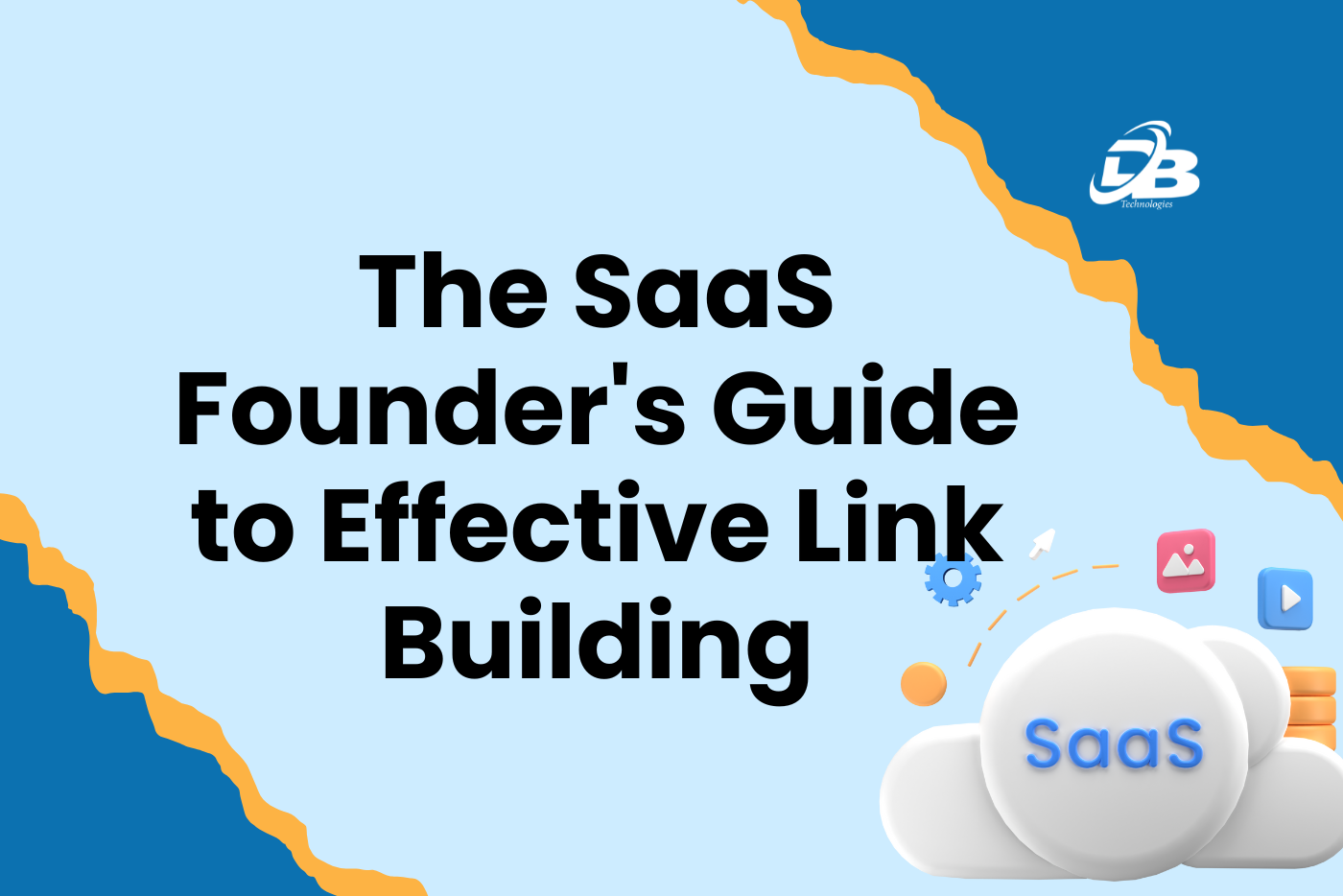
If you’re trying to build a SaaS business, you’re no stranger to the difficulty associated with competing in a crowded market. You could produce the best software in the world, but if prospective customers can’t find you, it won’t do you any good.
Link building is one of the most powerful ways to improve your search engine rankings,drive targeted traffic to your site and establish your brand as an industry authority.
Here’s the truth: Link building for SaaS isn’t about playing nice. It’s about playing smart.
After helping 37+ SaaS companies scale their organic traffic (and working with some of the best guest posting services UAE has to offer), I’ve distilled what actually works into this no-fluff guide.
This blog will teach you real, effective SaaS link building strategies that actually work—without shady shortcuts. Whether you’re looking for guest posting opportunities, link insertion tactics, or ways to leverage local SEO, we’ve got you covered.
Why Traditional Link Building Advice Fails for SaaS
Generic SEO advice is choking SaaS businesses, and it’s dying a slow, painful death, because it’s rooted in an overly simplistic understanding of our industry. Saying to a SaaS founder “to create viral content” or “to build relationships” is basically akin to saying to a startup “Just get more customers” — it’s vague and not useful.
The reality is that SaaS link building requires a different approach. We need strategies that account for:
1) The technical nature of our products (which makes link-earning content harder to create)
2) The lack of physical presence (which eliminates many natural link opportunities)
3) The long sales cycles (meaning we need SEO link building that drive not just traffic, but qualified leads)
The 5 Most Effective SaaS Link Building Strategies Right Now
1. Strategic Guest Posting That Actually Moves the Needle
Guest posting isn’t dead, but the spray-and-pray approach is. The key is to focus on publications that actually influence your target customers. Instead of pitching generic “thought leadership” pieces, we’ve found success with:
Data-driven exclusives: Partner with industry publications to release original research they can’t get elsewhere.
Product comparisons: Not the spammy kind, but genuine “how we stack up” analyses that publications want to reference.
Implementation guides: Deep dives into how to actually use your type of software to solve specific problems.
For UAE-based SaaS companies, working with specialized guest posting services in Dubai or Abu Dhabi can help navigate local media landscapes more effectively than going it alone.
2. The Smart Way to Do Link Insertions
Link insertion—adding your link to existing high-traffic content—works remarkably well when done right. The trick is to:
First, identify evergreen content in your niche that already ranks well. Tools like Ahrefs can show you these golden opportunities. Then, rather than cold-emailing with a link request, provide genuine value. For example, if you notice a popular post is missing a key statistic or case study from your business, reach out with:
“I noticed your excellent guide on [topic] doesn’t yet include [specific insight]. We recently published a [resource] that would perfectly complement your section on [specific point]—would you consider adding it as a reference?”
This approach works because you’re helping the author improve their content rather than just asking for a favor.
3. HARO (Help a Reporter Out) for SaaS Founders
HARO remains one of the most underutilized SEO link building channels for SaaS companies. The key is to:
1) Respond quickly (within 1-2 hours of the query)
2) Provide specific, data-backed insights rather than generic commentary
3) Position yourself as the contrarian expert when appropriate
For example, when a reporter asks about AI tools for businesses, instead of saying “AI is important,” try:
“Our data shows 68% of SMBs abandon AI tools within 3 months due to [specific pain point]. The real opportunity is in [alternative approach].”
This type of response gets picked up far more often because it provides actual news value.
4. Broken Link Building That Converts
While most marketers look for 404 errors, the real opportunity lies in outdated references. Look for:
1) Statistics cited as “as of 2020” that you can update
2) Old product comparisons where you now have better data
3) Changed industry standards that make previous advice obsolete
The pitch should focus on helping the site maintain its authority:
“Notice your otherwise excellent guide still references [outdated info]. We’ve just published [updated resource] with 2024 data—your readers might appreciate the refresh?”
5. Creating Truly Link-Worthy Content
Forget “top 10 tools” lists. The content that earns backlinks for SaaS companies includes:
UI/UX teardowns: Analyzing what works (and doesn’t) in popular SaaS products
Pricing transparency reports: Comparing true costs across competitors
Implementation case studies: Showing exactly how companies achieved results with your type of software
The key is to create resources that other businesses will naturally reference when advising their own clients or audiences.
The Biggest SaaS Link Building Mistakes to Avoid
Even with the right strategies, many SaaS companies undermine their efforts through common pitfalls:
Asking for links too soon: Build a relationship first by engaging with the site’s content, then later suggest a link opportunity.
Over-optimizing anchor text: Natural link profiles include branded terms and generic phrases, not just exact-match keywords.
Ignoring niche relevance: A link from a general business blog won’t help as much as one from an industry-specific publication.
Making It Work for Your SaaS
The most successful SaaS link building campaigns combine several of these strategies while maintaining a focus on quality over quantity.
Pick one method that fits your resources, record what gets results, and build from there. And remember, in the SaaS space, links are not just for SEO — they are for credibility and can actually impact purchases directly. With high authority links one can not only improve ranking but also build trust of potential customers.
The companies that treat link building as a core growth strategy, rather than an afterthought, are the ones that consistently outperform their competitors in organic search results. Now that you know the strategies that actually work, the question is: Which one will you implement first?
A Real World Example: How We Built 87 High-Quality Backlinks for a SaaS Startup
Let me walk you through an actual campaign we ran for a project management SaaS company last quarter. This wasn’t some theoretical exercise – these are the exact steps that generated real results.
The Challenge
Our client, let’s call them “TaskFlow”, had decent content but struggled to earn backlinks. They were stuck at around 20 referring domains after 18 months in business, while competitors had 200+. Their organic growth had plateaued.
Step 1: Competitive Backlink Analysis
We started by analyzing their top 3 competitors using Ahrefs. One competitor had a particularly interesting link from a popular productivity blog’s “Best Tools for Remote Teams” roundup.
Key finding: The article was last updated 8 months ago and included several outdated tools.
Step 2: Creating a Superior Resource
Instead of just asking for a link, we:
1) Conducted fresh testing of all tools mentioned (including our client’s)
2) Created detailed comparison tables with screenshots
3) Added unique data points like actual speed tests and user onboarding flows
4) Designed an interactive comparison tool
Total production time: 12 days
Step 3: The Outreach Process
We didn’t use generic templates. Here’s the exact email that got us in the door:
Subject Line: Quick suggestion for your remote tools guide
Body:
“Hi [First Name],
I was reviewing your excellent guide to remote work tools (which we actually use internally!) and noticed a few changes since your last update.
We recently benchmarked all the major options, including some new entrants. A few interesting findings:
1) Tool X’s mobile app is now 40% slower than in your tests
2) Tool Y changed their pricing structure significantly
3) Three new options now beat the incumbents in onboarding speed
We put together a detailed comparison with video walkthroughs. Would you be open to seeing the data to potentially refresh your guide?
Either way, thanks for maintaining such a valuable resource!
Best Regards,
[Your Name]”
Step 4: The Result
This single campaign:
1) Earned 12 direct backlinks (including the target site)
2) Generated 37 additional links as other sites referenced our comparison
3) Drove 1,243 referral visitors in the first month
4) Converted at 3.2% to free trials (vs. 1.4% from other channels)
Why This Worked
1) We led with value – Not a link request, but a content improvement
2) We did the work – Created something better than what existed
3) We made it easy – Provided all assets they’d need to update
4) We timed it right – Reached out mid-week, mid-morning
Key Takeaways for Your SaaS
1) Quality over quantity – One great resource outperforms dozens of mediocre links
2) Help first – Frame everything as helping them improve their content
3) Invest in assets – The interactive tool cost $1,200 to build but earned that back in 9 days
4) Track everything – We knew exactly which links converted to trials












